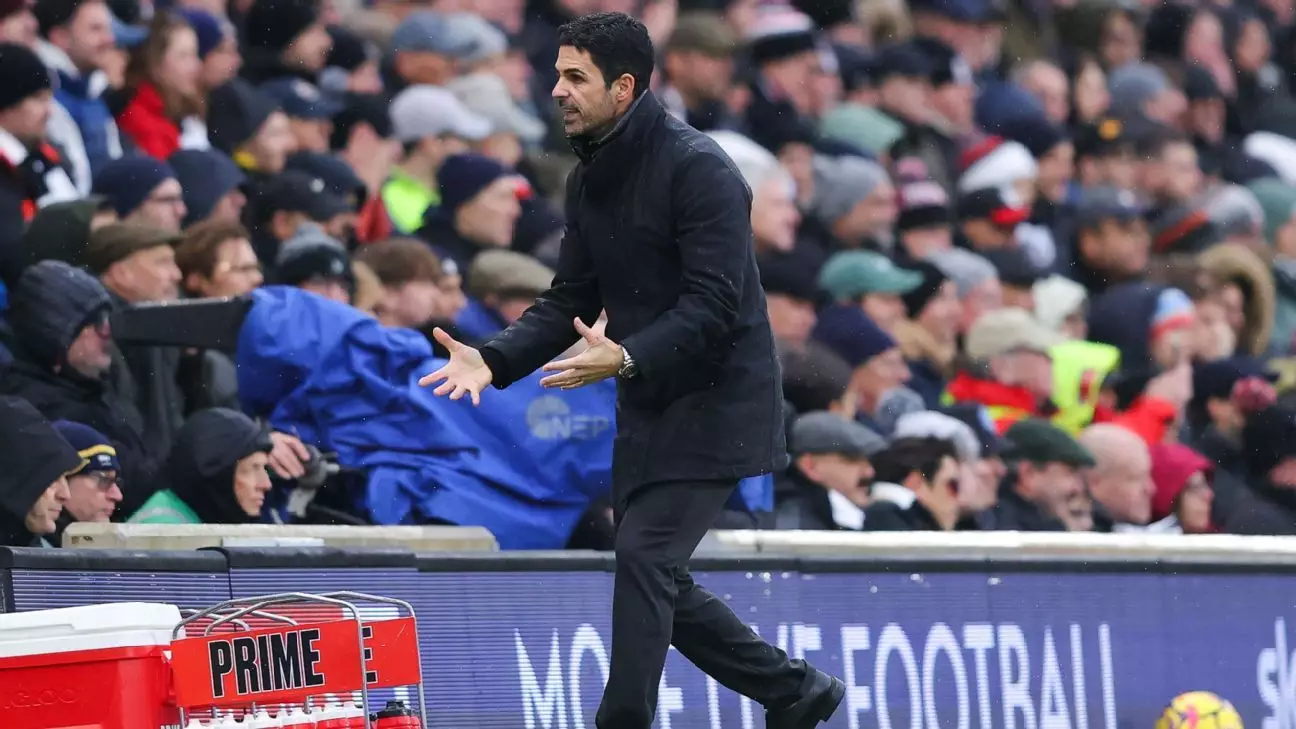In a match that left Arsenal manager Mikel Arteta feeling “gutted,” the Gunners were held to a 1-1 draw against Fulham, despite exhibiting a performance that many would argue merited a win. The game, played at Craven Cottage, saw Arsenal dominate possession but struggle to convert that control into goals, a heart-wrenching scenario that many top teams find themselves grappling with. With defender William Saliba salvaging a point in the second half after Raúl Jiménez initially put Fulham ahead, the draw served as a bittersweet pill for Arsenal fans. While the statistics might show superiority, the reality on the pitch demonstrated that football is not merely about possession, but about netting goals.
Arteta, while expressing his disappointment at not securing all three points, acknowledged the quality posed by Fulham and their capability to frustrate opponents. The manager’s remarks reflect a semblance of respect for the opposition that has historically troubled Arsenal. The Gunners had previously encountered difficulties against Fulham, having lost to them in the prior season on their home turf and only managing a draw in their following encounter. Such a record tends to psyche opponents out, especially for a team like Arsenal, which aims to challenge for the title. Fulham’s tactical execution demonstrated that they could easily capitalize on any defensive lapses, which Arsenal experienced.
The game was characterized by Arsenal’s staggering 70% possession, which underlines a tactical dilemma that plagues many possession-based teams: controlling the ball does not always translate into scoring opportunities. Promising chances went unconverted, including a late goal by Bukayo Saka, which was disallowed by VAR for a marginal offside—highlighting the thin margins that define successful play. Arteta’s frustration, therefore, stems from the realization that while they dominated the ball, football matches are won in the final third, where clinical finishing becomes paramount.
In discussing the early goal conceded, Arteta faced questions regarding his makeshift defense, particularly the absence of key defender Gabriel Magalhães. The manager’s response indicated an understanding that injuries are part of the game, and while having a full-strength squad is advantageous, the players available must rise to the occasion. Defender Jakub Kiwior received positive remarks for his performance, indicating that despite the changes, there is potential for resilience within the squad. This adaptability in the face of adversity will be critical as Arsenal strives to maintain their position in the tightly contested league standings, currently sitting third—two points behind Chelsea and six off the pace of leaders Liverpool.
As Arsenal moves forward from this encounter, it is imperative that they refine their approach to capitalize on dominant positions. Arteta’s philosophy emphasizes attacking play, yet the need for a pragmatic edge—finding the back of the net regardless of possession percentages—underpins their aspirations for the season. With further fixtures lined up, the challenge remains for Arsenal to ensure their performances transform into tangible success on the score sheet, paving the way toward a more successful campaign. Would they come to rue missed opportunities, or could this be a wake-up call in their quest for glory? Only time will tell.

